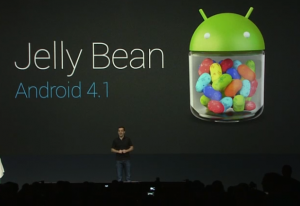The Financial Impact of Consumerization – You can’t manage what you don’t measure
December 11, 2012 1 Comment
 The Consumerization of IT is a trend even the most parochial IT manager has surely heard of by now. It’s sweeping through enterprises across the planet with no regard for legacy, tradition or order and can be seen as either the most exciting or terrifying thing to happen to IT in the past decade, depending on where you stand.
The Consumerization of IT is a trend even the most parochial IT manager has surely heard of by now. It’s sweeping through enterprises across the planet with no regard for legacy, tradition or order and can be seen as either the most exciting or terrifying thing to happen to IT in the past decade, depending on where you stand.
For many IT managers, unfortunately, the prevailing attitude is still “why should I allow it?”. They are clinging on to the old paradigm whereby IT controlled and dictated the purchasing and ongoing management of technology used by employees. This attitude just will not stand any longer – consumerization is happening, and it needs to be managed in as financially efficient a manner as possible.
 Companies that don’t protect themselves through policies place themselves at risk.
Companies that don’t protect themselves through policies place themselves at risk.



 Google recently announced Android 4.1 ‘Jelly Bean’ at its I/O conference in San Francisco. The latest flavor of the world’s #1 mobile OS promises better user experience and sexier UI. But does it really make any easier for IT to secure and manage those
Google recently announced Android 4.1 ‘Jelly Bean’ at its I/O conference in San Francisco. The latest flavor of the world’s #1 mobile OS promises better user experience and sexier UI. But does it really make any easier for IT to secure and manage those Where employees once enquired about private medical cover and company cars, now they may ask to work on their own iPhone or Android. It’s a perk of the job that can boost productivity, but implement your BYOD policy incorrectly (or even pretend it’s not happening) and it could cost you dear, say our experts
Where employees once enquired about private medical cover and company cars, now they may ask to work on their own iPhone or Android. It’s a perk of the job that can boost productivity, but implement your BYOD policy incorrectly (or even pretend it’s not happening) and it could cost you dear, say our experts
 “Adapt, accept and manage: a BYOD mantra for corporate IT”
“Adapt, accept and manage: a BYOD mantra for corporate IT”


